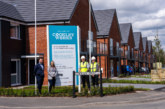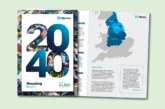
The High Court has given the green light to local authorities looking to create joint ventures using a Limited Liability Partnership (LLP) structure in order to promote regeneration objectives — following its highly anticipated judgment in the case of Peters v London Borough Haringey.
The ruling will bring significant comfort to many local authorities after the High Court confirmed that this structure can legitimately be used in these circumstances.
In Peters, residents of the London Borough of Haringey brought a claim contesting the creation of the controversial £2bn Haringey Development Vehicle (HDV) between the Council and Lendlease, the private sector developer.
One of the key grounds submitted by the residents was that the HDV should not have been established as an LLP and, instead, should have been established as a limited company, as they claimed the Council was acting for a commercial purpose.
The court dismissed the residents’ challenge on all grounds. In relation to the LLP ground, it held that the question to be asked when assessing whether the Council was acting for a commercial purpose, was ‘what purpose does the Council have for entering into these arrangements?’ When answering this question, the overall purpose of the Council was key. The court’s view was that the overall purpose of the Council when establishing the HDV was not commercial; any commercial component was merely incidental or ancillary. Therefore, a company was not necessary and an LLP could be used for this project.
Alex Kynoch, a Public Procurement and Local Authority Expert at law firm Browne Jacobson LLP, pictured above, commented on the decision: “Today’s judgment is fantastic news for local authorities throughout the country who are using, or planning to use, LLP vehicles in their regeneration projects. The decision provides welcome confirmation that these vehicles are lawful for projects of this nature.”








